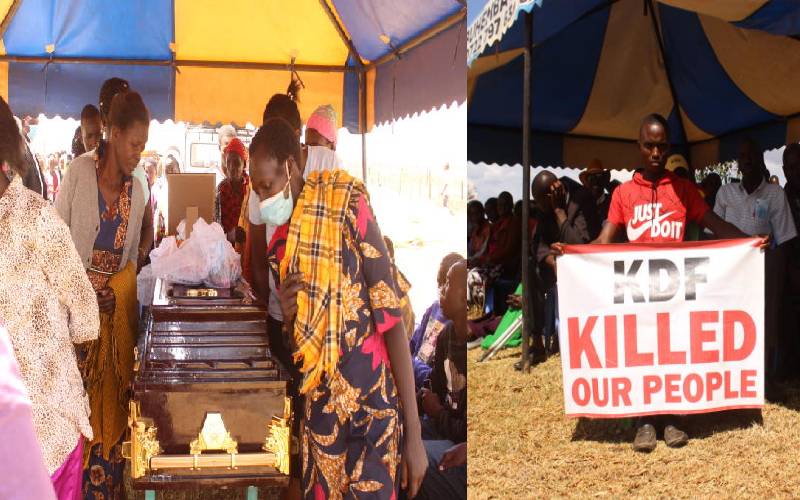×
The Standard e-Paper
Kenya’s Boldest Voice

Family members and residents of Chebarus Village viewing the body of the late Joel Kibet Keter during his burial at Chebarus village,Uasin Gishu County on January 5,2021. [Christopher Kipsang,Standard]
Residents of Kiplombe in Turbo sub-county, Uasin Gishu, now want the government to issue them with title deeds to a disputed piece of land, which the military is also claiming, to end perennial conflicts that recently led to the shooting of two people.